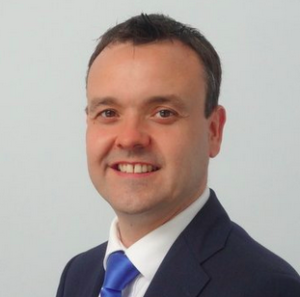Stephen McPartland and Royston Smith: To build back better, Ministers must regain the trust of leaseholders

Stephen McPartland is MP for Stevenage. Royston Smith is MP for Southampton Itchen.
More than three and a half years on from Grenfell, the fallout of the cladding crisis is still being felt by millions of leaseholders today.
Since then, the cladding crisis has only increased in magnitude. It has grown from the slow uncovering of a building safety one into a severe moral, economic and political dilemma, which has blighted the lives of too many for too long.
For years, people have been buying property which has subsequently been deemed unsafe. When you buy something as significant as this, most people do their homework. They instruct a solicitor to ensure that everything is legal. They assume that their home will not be wrapped in flammable material. They expect that successive governments would not accept unsafe insulation, sub-standard fire doors or dangerous balconies. But no matter the due diligence: this is exactly what tens of thousands have bought.
The Government’s announcement of an additional GBP3.5 billion for leaseholders in buildings above 18 metres or above six stories in height, on top of the GBP1.5 billion Fire Safety Fund announced last year, was encouraging news and a step in the right direction. It shows the Government has listened to worried homeowners’ concerns up and down the country, and the announcement no doubt came as a relief to many. But not all.
To be clear, leaseholders and ourselves want those responsible to pay. We have never asked the Government to pay for the full costs of remediation, but merely to provide a safety net for leaseholders, to ensure that the fire safety works are undertaken. Only the Government can afford to provide the cashflow to pay for these works up front; and only the Government can then introduce the levies on those responsible to claw that money back over the next ten years.
Despite the massive generosity of the Treasury in providing GBP5 billion in funds for cladding, this is only one aspect of the fire safety defects currently bankrupting leaseholders today. In buildings above 18 metres, leaseholders will still have to find the funds to fix a plethora of fire safety defects that experts predict could cost them another GBP5 billion.
Homes between 11 and 18 metres in height or between four and six storeys tall do not qualify for this new funding. This affects about half of all buildings affected by unsafe cladding. It includes developments such as conversions from office blocks and low-rise blocks with wooden balconies and flammable insulation. Homeowners with properties that fall into this category will qualify for a long-term low-interest loan capped at GBP50 a month to pay for the costs to remove dangerous cladding. However, they will still have to find the funds to pay for remediating all other fire safety defects.
GBP50 per month is too much to demand from leaseholders of homes with unsafe cladding. It will be GBP50 per month, almost in perpetuity with interest, until the debt caused by remediation costs are paid off. This is an additional GBP50 per month on top of increased insurance premiums and interim fire safety measures including; expensive night watch, sprinkler systems, fire safety surveys. How is it fair to expect them to keep pouring their money into a bottomless pit for being sold homes not safe to live in?
Leaseholders in buildings below 11 metres receive no support for help with cladding or fire safety defects. This affects hundreds of thousands of blocks of flats, because the Government changed the guidance in January 2020. It issued a consolidated advice note for Building Owners of Multi-storey, Multi-occupied Residential Buildings.
This changed the regulatory guidance, and it now applies to any building of any height, instead of buildings over 18 metres. So at a stroke, second storey flats, were treated the same as flats on the top storey of buildings over 18 metres for the purposes of fire safety regulation, mortgages and insurance for example.
Many of these leaseholders are already in debt. They must sacrifice working hard for years to pay off these debts due to the poor decisions of successive Governments and housing developers, so that they can keep their Help to Buy or shared ownership homes. What was envisioned as a first step onto the property ladder for many people has turned into a never-ending nightmare that will affect people’s lives and our society for years to come, if unresolved.
Leaseholders find it almost impossible to sell their homes even if they acquire the EWS1 form necessary for the potential buyers’ mortgage approval. After all, who wants to buy a home cladded with combustible material, with a potentially unlimited bill to pay? Hundreds of thousands of homes continue to depreciate in value while they have the potential to recover if the unsafe cladding and other fire safety defects are remediated.
The Secretary of State says that, after the Covid pandemic, the Government wants to build back better–better homes, better infrastructure, and better communities. To do so, it must regain the trust of leaseholders who find themselves entangled in the cladding crisis.
The McPartland-Smith amendments to the Fire Safety Bill will stop leaseholders’ nightmare once and for all. The amendments, if passed, will prevent remedial cladding costs due to historic building defects from being passed onto leaseholders. The Government has a chance to right the wrongs caused by decades of bad policies, while kick-starting the post-Covid economy, by reactivating the values of hundreds of thousands of properties that are often people’s first homes, and creating the desirable ripple effect for properties up the chain.
Forty Conservative MP’s had signed our amendment, though a handful have now withdrawn their names. They have done so in good faith, believing we have achieved the aims of the amendment. Sadly, that isn’t the case. More than half of those caught up in the cladding scandal will have to pay for remediation costs themselves. Imagine living on one side of a road and having to take out a loan to pay for replacement of cladding and seeing people on the other side having the works carried out for free? Does anyone think that is fair?
The Fire Safety Bill will return to Parliament on 24 February, and we urge the Government to accept it. We will move our amendment because we cannot, in all conscience, allow half of leaseholders to face more debt and we cannot abandon leaseholders to the crippling costs of massive insurance premiums, waking watch and remediation of defects which weren’t deemed unsafe when they bought their property.
MPs will need to decide if they think protecting people from living in unsafe buildings, through no fault of their own, is the responsibility of government or not. Parliament voted to lock the country down to save lives: this is no different.
Originally found on Conservative Home Read More








